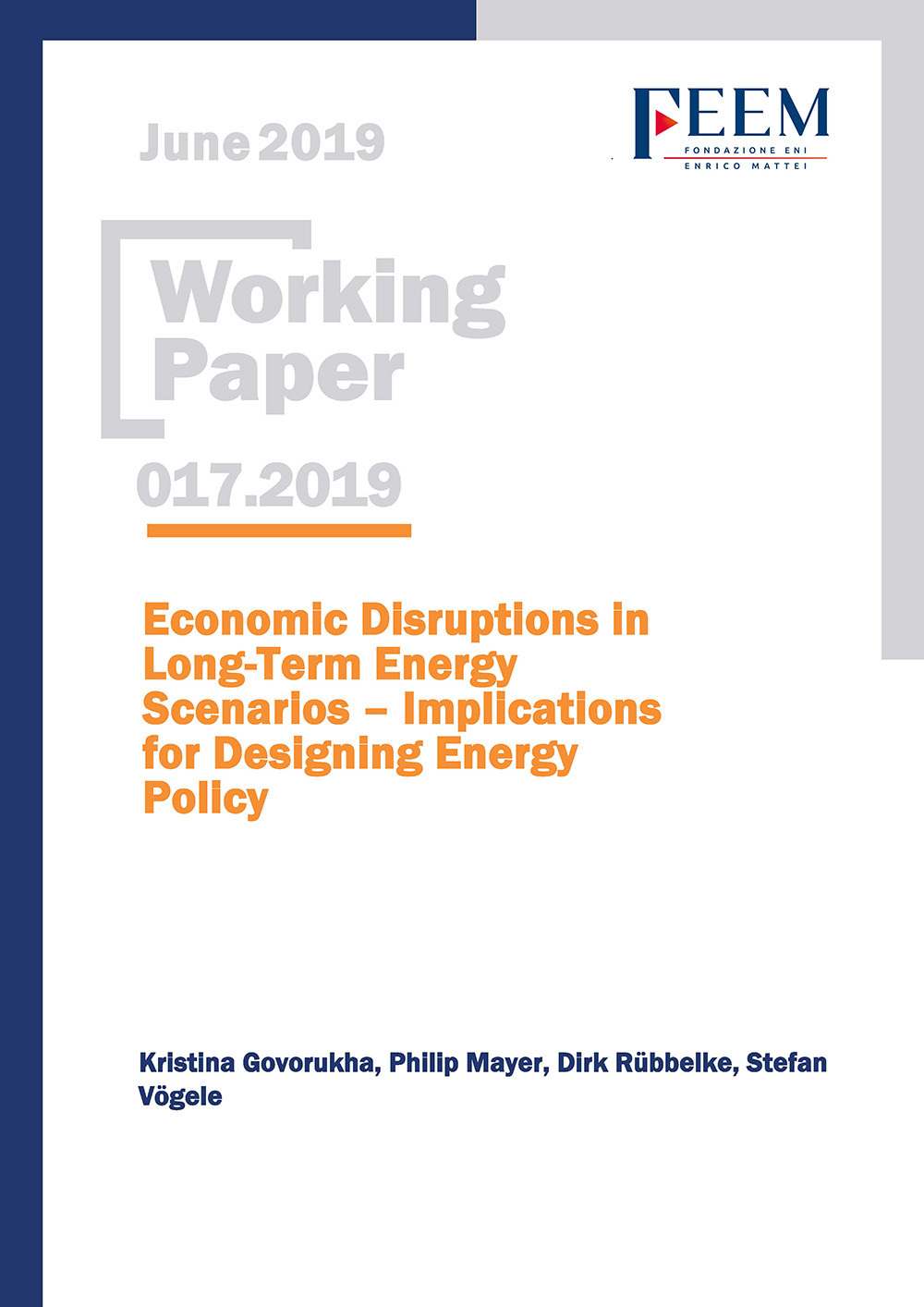Economic Disruptions in Long-Term Energy Scenarios – Implications for Designing Energy Policy

27.06.2019
Q4, Q43
Scenario Analysis, Electricity Markets, Economic Development, Energy Market Modelling, Uncertainty, Macroeconomic Cycles, Electricity Production
Future Energy Program
Manfred Hafner
The main drivers of transformation processes of electricity markets stem from climate policies and changing economic environments. In order to analyse the respective developments, modelling approaches regularly rely on multiple structural and parametric simplifications. For example, discontinuities in economic development (recessions and booms) are frequently disregarded. Distorting effects that are caused by such simplifications tend to scale up with an extension of the time horizon of the analysis and can significantly affect the accuracy of long-term projections. In this study, we include information on economic discontinuities and elaborate on their influences on short-and long-term modelling outcomes. Based on historical data, we identify the impact of a high-amplitude change in economic parameters and examine its cumulative effect on the German electricity market by applying a techno-economic electricity market model for the period from 2005 to 2014. Similar changes may consistently occur in the future and we expect that a more comprehensive understanding of their effects on long-term scenarios will increase the validity of long-term models. Results indicate that policy decision making based on modelling frameworks can benefit from a comprehensive understanding of the underlying simplifications of most scenario studies.
***
Suggested citation: Govorukha, K., P. Mayer, D. Rübbelke, S. Vögele, (2019), ‘Economic Disruptions in Long-Term Energy Scenarios – Implications for Designing Energy Policy’, Nota di Lavoro 17.2019, Milano, Italy: Fondazione Eni Enrico Mattei.
